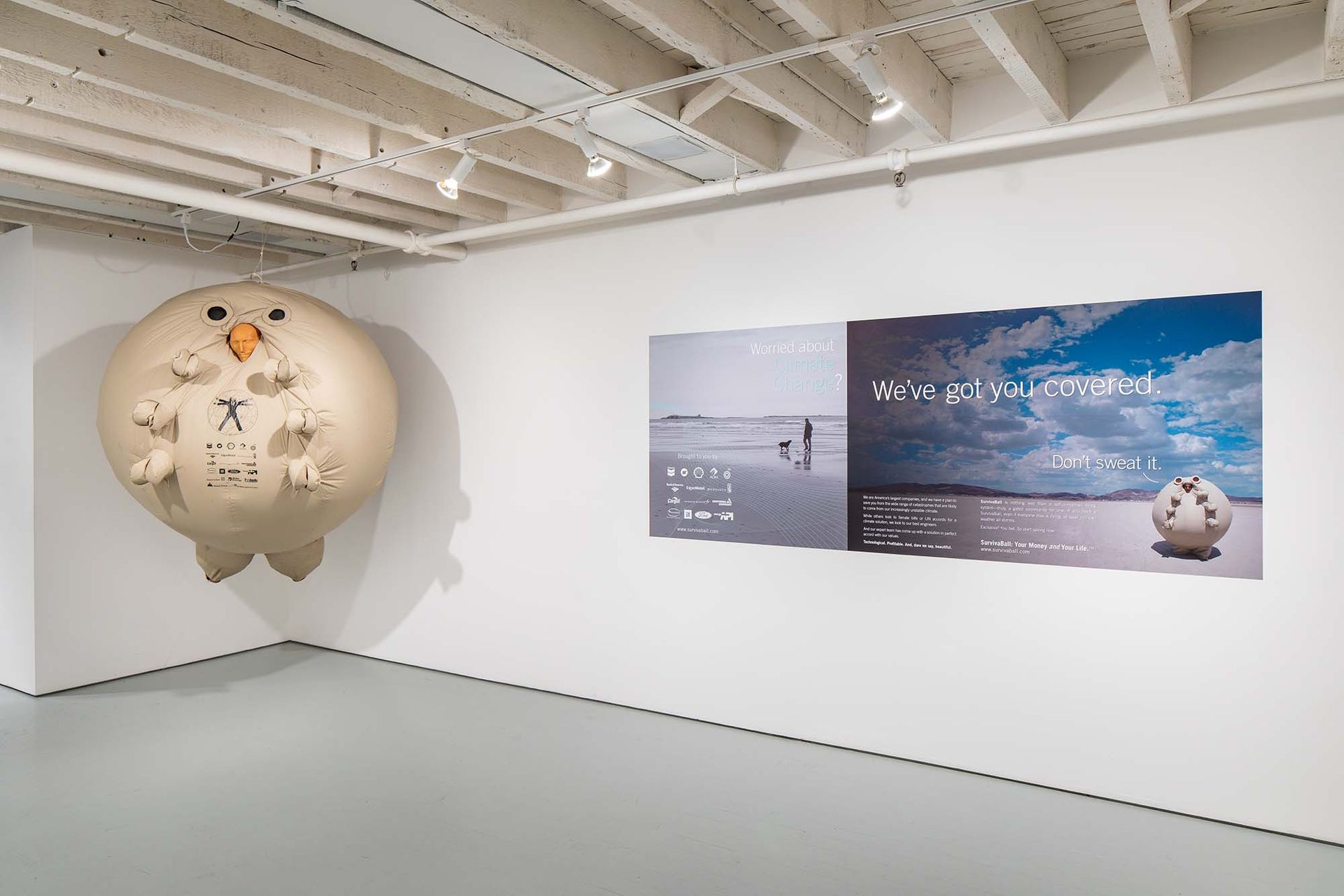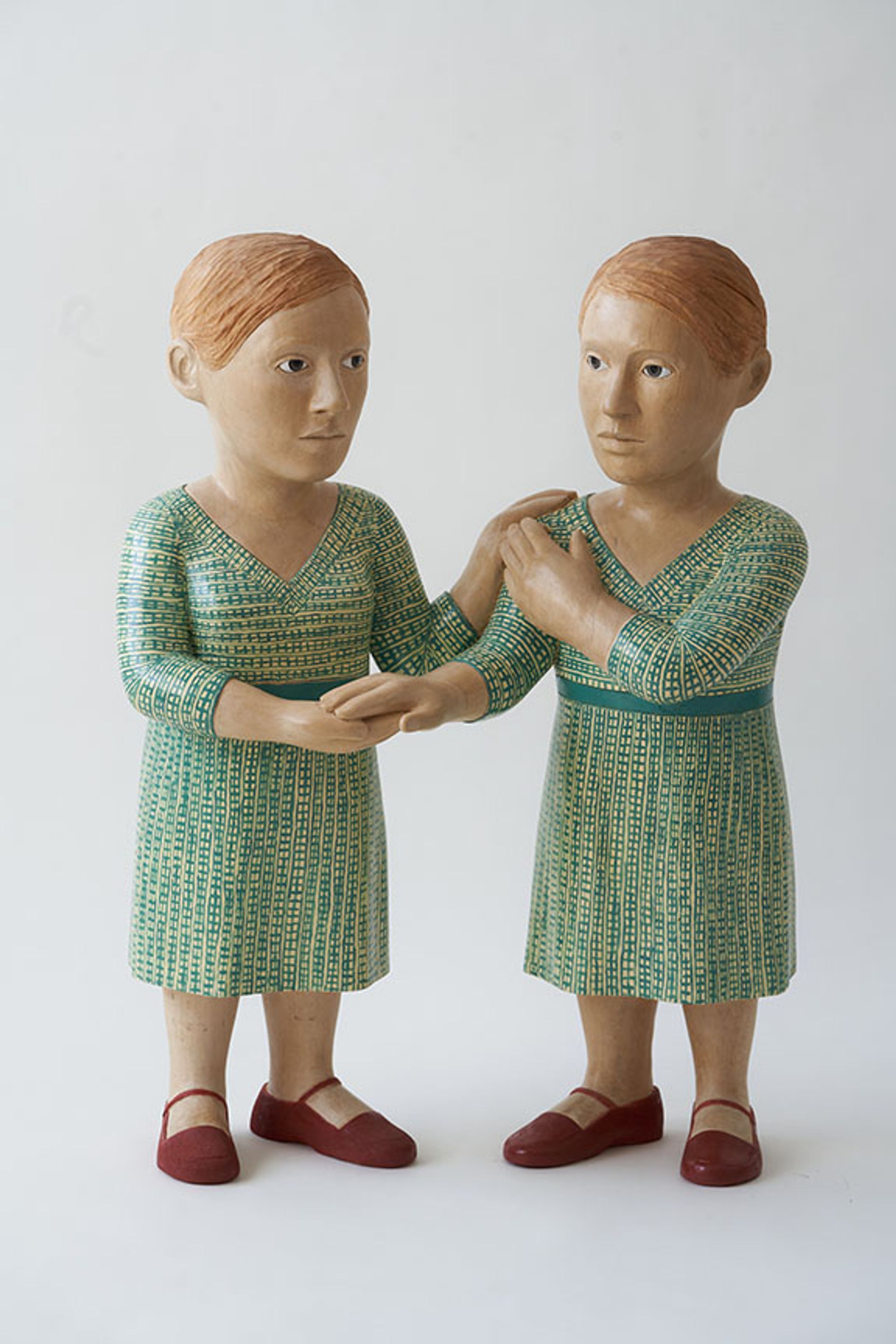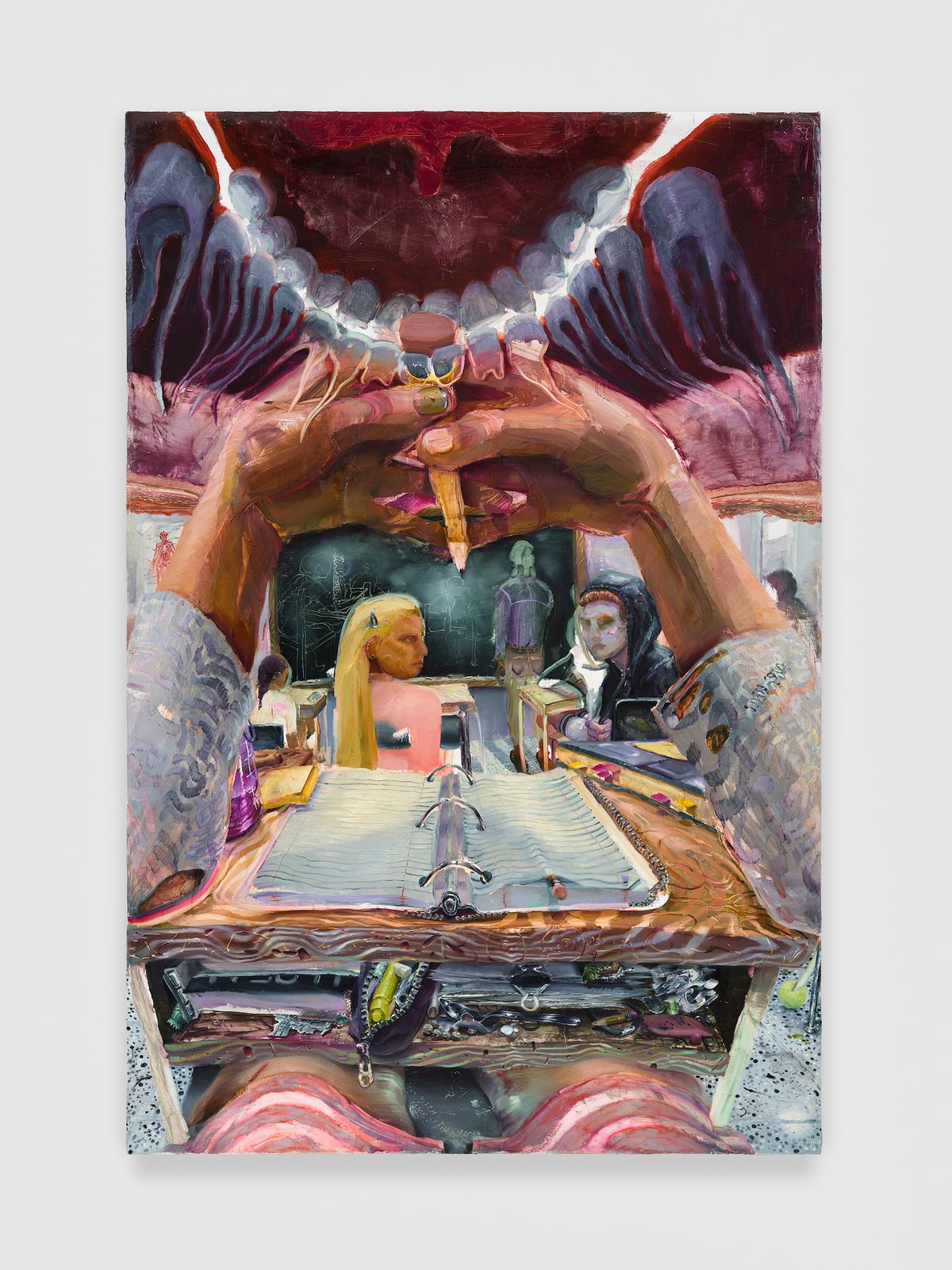Danica Lundy: Three Hole Punch
Until 10 March, Magenta Plains, 94 Allen Street, Manhattan
Figurative painting is ubiquitous as ever in New York City galleries, but nobody is doing it quite like Danica Lundy. In the seven large-scale canvases on view here, the Brooklyn-based Canadian artist puts viewers in improbable positions within tableaux of teenage life that hum with narrative detail. In Kissing Cavity (2021), for example, we peer out from inside the mouth of a student nervously nibbling on her pencil. Her teeth, arms and legs frame the classroom scene; her desk in the foreground overflows with papers and baubles, its every surface scratched with juvenile images and messages. Two fellow students stare back ominously, while the teacher draws what looks like a duplicate of the very same scene on the chalkboard. The composition, with its disquieting intensity and layered references, may actually be the most straightforward in the show, which also includes a disorienting car park party scene and another painting that might depict the party’s aftermath, where we see a young woman vomiting into a toilet from a point of view that might be located inside the plumbing. Throughout, Lundy conveys the unwieldy physicality of adolescence and early adulthood with impressive, sometimes-discomforting vividness.

The Yes Men installation view at Carriage Trade, featuring Balls Across America with, at left, SurvivaBall, 2008, inflatable vinyl suit, fans, silicone, dimensions variable and, at right, SurvivaBall wall mural, 2021 Photo: Nicholas Knight; Courtesy the artists, Carriage Trade
The Yes Men
Until 27 March, Carriage Trade, 277 Grand Street, Second Floor, Manhattan
The Yes Men, a subversive collective of corporate chameleons founded by Jacques Servin and Igor Vamos in the early 1990s, has pulled off an impressive array of what they call “identity-correcting” actions: posing as company spokespersons and discussing the quiet parts of capitalist malfeasance out loud. There was, for instance, the presentation at a 2005 London business conference where a member, posing as Dow Chemical representative Erastus Hamm (the group has a way with aliases), unveiled the company’s “acceptable risk calculator”, intended to help companies figure out, “Will project X be just another skeleton in the closet—something your company comes to regret? Or will it be a golden skeleton—will it have harsh, but acceptable costs?” Videos and mementos from this and other coups are on view in this mini-retrospective, including their fake edition of the New York Times with the front-page story “Iraq War Ends” (they handed out more than 1 million copies one day in November 2008) and a prototype for a “SurvivaBall”, an inflatable suit (or “a gated community for one”, per a satiric ad) purportedly developed by the US’s biggest companies that would allow the wearer to survive the cataclysms brought on by the firms' rampant profiteering. The exhibition is a very timely greatest-hits of the Yes Men’s distinctive brand of culture-jamming, which fuses the fly-in-the-soup approach of a Sacha Baron Cohen character with the sly design tactics of BP or not BP? and Adbusters.

Claudette Schreuders, Accomplice (2021) © Claudette Schreuders. Courtesy of the artist and Jack Shainman Gallery, New York.
Claudette Schreuders: Doubles
Until 2 April at Jack Shainman, 524 West 24th Street, Manhattan
What is it like to be alone, yet have the company of the person who knows you best…yourself? At Jack Shainman, the South African artist Claudette Schreuders may have the answer. In her seventh exhibition with the gallery, Schreuders continues her thematic exploration of identity and what it means to be someone’s partner. Doubles consists of four figurative painted wood sculptures, heavily inspired by the solitude and introspection forced upon all of us in since the beginning of the Covid-19 pandemic. As fraught as the inspiration is, the sculptures convey an eerie peace. There are few things in the world as comforting as being at one with yourself, and these sculptures, influenced by West African carvings and Spanish portraiture, hint at the idea that no matter how private we are, there is always room for one more.


